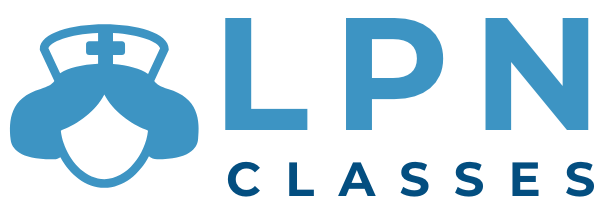

My name is Katie, and I have been a nurse for 10 years. My healthcare journey began in 2013 when I started as a CNA, eventually progressing through school to achieve my BSN. I specialize in Emergency Medicine and have worked as a Travel ER RN since the COVID-19 pandemic. Nursing has been life-changing for me. I strive to be the good in difficult situations and provide the best care possible to my patients.
Thinking about becoming a Licensed Practical Nurse (LPN)? There’s more to it than just picking a program and signing up. But before you dive into training, there are a few things worth knowing that don’t always show up on the course syllabus.
This article isn’t about statistics or rankings. It’s about what actually matters when stepping into a career where people will depend on you for their care, safety, and comfort.

You’ve probably seen lists of what LPNs “do”: take vitals, give medications, assist with hygiene, and so on. That’s true—but it’s also the surface level.
What you really need to know is that LPNs are the front line of care. You’ll often be the first person a patient sees when they’re admitted and the last one they talk to before they leave. It’s a hands-on, people-first job. Some days, that’s incredibly rewarding. Other days, it’s emotionally draining.
Before you commit, ask yourself: Are you comfortable being up close to people who are vulnerable, sick, or scared? Can you stay calm under pressure and still show compassion?
If yes, you’re already ahead of the curve.
LPN training programs are usually 12 to 18 months long, which sounds manageable—and it is—but make no mistake: it’s intense. You’ll be balancing clinical hours, labs, lectures, and probably a job or family responsibilities on top of it.
It’s helpful to treat your training like a full-time job, even if it’s part-time. Planning your schedule, blocking out study time, and staying organized will save you a lot of stress down the road.
And while the coursework isn’t medical school-level hard, you’ll still need to learn the fundamentals of anatomy, pharmacology, infection control, and ethical care—all things that aren’t easy to cram overnight.
One of the most eye-opening parts of LPN training is your clinical experience. You’ll step into real healthcare settings—assisted living facilities, hospitals, rehabilitation centers—and start interacting with patients under supervision.
It’s where the theory becomes reality. It’s also where you’ll figure out what kind of nurse you want to be.
You might discover you love working with seniors, or that you’re more suited for fast-paced environments. You might also realize you’re not great with blood draws—but amazing at comforting anxious patients.
This is the space to learn, mess up, ask questions, and gain confidence. Take it seriously, and you’ll carry those lessons into your first job.
After finishing your program, you’ll need to pass the NCLEX-PN, the national exam that qualifies you for licensure. It’s not something you can wing.
Test prep should be baked into your routine from day one. Build review time into your schedule, take practice exams, and understand the way the NCLEX questions are structured. It’s less about memorizing facts and more about learning to think like a nurse.
And yes, it feels intimidating—but once you pass, that license is your ticket to work anywhere you want to go.
No one walks into their first LPN job fully prepared for what’s coming. The learning curve is steep, and you’ll probably feel overwhelmed at times. That’s normal.
The good news? Growth happens fast. You’ll pick up practical skills, communication strategies, and time-management habits you didn’t know you needed. You’ll become the nurse people rely on—not because you know everything, but because you show up, learn, and get better every day.
And for many LPNs, this isn’t the end goal. It’s the beginning of a longer journey—toward RN status, specializations, or advanced degrees. But even if you stay an LPN, it’s a career with purpose, stability, and real human connection.
LPN training is more than a career step—it’s a transformation. You’re not just learning how to check vitals or administer meds. You’re learning how to be a caregiver, an advocate, and a professional others will trust.
If you’re ready to commit to that path, we’re here to help you get started. Use our form to match with LPN programs near you and take that first step toward something real.
Ready to kickstart your healthcare journey?
Fill out the form above, and let CNA Class Guide match you with the best CNA training programs in your area!

Copyright © 2025 LPN Class Guide
All Rights Reserved